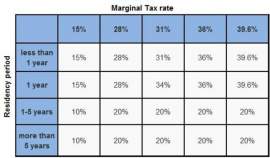
Revocable Living Trust

Must Read
What is a revocable living trust?
A revocable living trust is an alternative to a will that provides for the disbursements of one’s assets to beneficiaries, with conditions. This is a preferable option to the instant disbursal of assets upon one’s wealth, especially if there are concerns for how the beneficiaries will use their windfall. Additionally, the revocable living trust can be active while you are alive, rather than having a will which is active only upon your death. As the name implies, you can make adjustments to the revocable living trust to meet changes involving assets or the status of beneficiaries.
Why should I establish a revocable living trust?
In a revocable living trust, the wishes of the deceased are already established, so there is no need for the probate process. The probate process is lengthy and will require lawyers as well as the interference of the government. Beneficiaries will instead follow the instructions outlined in the revocable living trust. This process is private while probate is a public matter. The revocable living trust also allows the grantor the freedom to adjust the trust allocation to his or her living while they are still alive.
You will also eliminate challenges to the estate through the establishment of a revocable living trust. In your instructions for the revocable living trust, you will be able to stipulate who may be a beneficiary, as who is specifically disallowed from benefiting from the estate. Without a revocable living trust any family member can make claims on the estate, especially as the details of the estate will be made public.
How can a revocable living trust be used to control the assets disbursed to beneficiaries?
Even after the holder of the estate dies, a professional trustee can be used to carry out your wishes and withhold or modify the revocable living trust according to the wishes you have stipulated before your passing. In this way, you will ensure that the estate is spent properly rather than squandered due to a lack of oversight.
What are the disadvantages of a revocable living trust?
Revocable living trusts are not a perfect solution. You will incur several costs from planning and administering the estate, especially if there is a professional trustee involved. The more complex and extensive the estate, the more you can expect to pay for revocable living trust expenses. You may also need to allocate additional assets that cannot be immediately included in the trust through a will. This means that you will have to go through the additional expenses and time to establish a will that will transfer the property in question to the trust to be administered.
If you feel that you would prefer either a revocable living trust or a will as an estate resolution solution, one should contact a trusts lawyer that will be able to evaluate your estate and determine an estimate on how much it will take to establish the trust and administer to it. The trusts lawyer will also be able to procure a professional trustee, if necessary, through professional relationships.
NEXT: Revocable Trust





















